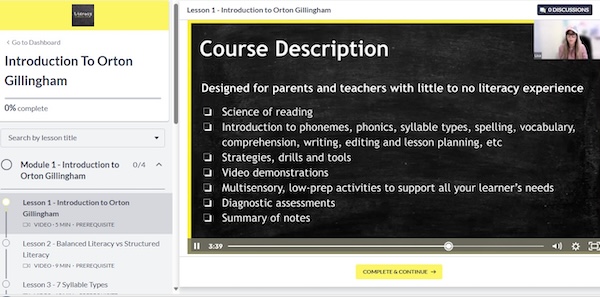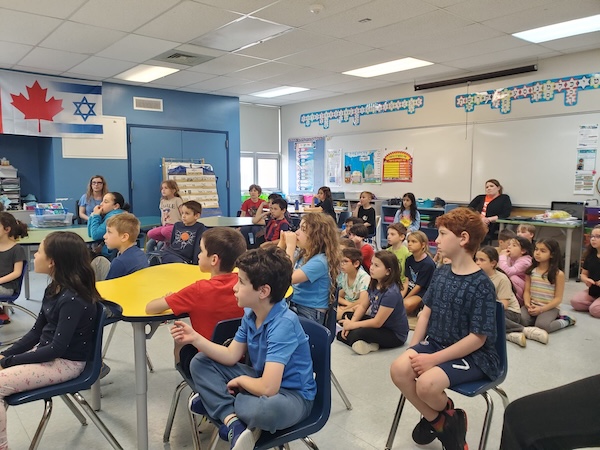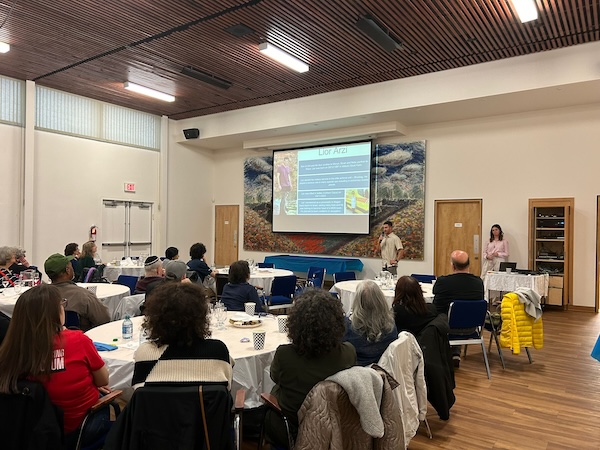Lisa Gelberman (photo courtesy)
Over the years, Toronto-based educator Lisa Gelberman saw a consistent problem with the education system: it did not address the fact that a third of students in North America have various reading difficulties.
“When kids struggle academically, they struggle behaviourally, they struggle socially, and long-term success becomes more unlikely. It’s a huge spiral,” said Gelberman, principal at Kayla’s Children Centre (KCC).
In her view, the need was so great to help those falling through the literacy cracks, that she took matters into her own hands to find a way to solve the problem. Over time, she developed an online reading program called Literacy Decoded, which launched in 2022. Its aim is to train teachers to support students with learning disabilities, dyslexia and other developmental delays. Several Toronto Jewish schools (including Bais Yaakov High School and Eitz Chaim Schools) have purchased the course and adopted its curricula. She has sold it to hundreds of educators across North America.
Comprising mostly Jewish students, KCC is a school, therapy clinic, recreational centre and camp for children with special needs, and some students, including those who have extreme delays, have learned to read because of the program.
“The Jewish community sees the importance of supporting children with learning disabilities and dyslexia,” Gelberman said. “There are going to be fewer kids leaving the Jewish school systems for secular schools, because now their own schools have the training and resources needed. Now their needs are being met and [the program is] changing their educational outcome,” she contends.
The mother of five began her career as a teacher at a public school, teaching first grade for three years, then, having taken various course qualifications, she began teaching special education. Later, she led a class for students with learning disabilities, dyslexia or severe ADHD. Afterwards, she taught children with autism.
“I was always very passionate about teaching children to read,” she said. “Developing curricula and exploring different paths to teaching kids to read is my purpose.”
Up until about five years ago, Gelberman said, most schools across North America used a methodology called the “whole language approach.” But a full third of children do not pick up reading from this method, she argues. “So, kids struggle, and I just knew there’s something I had to do about it.
“Every year,” she continued, “I got so close to teaching this one child to read [but] he came back after the summer and it was like everything I taught him was lost. I didn’t understand why. That’s when I started to look for other programs to help.”
She discovered the Orton-Gillingham approach, and, on her own dime and with a year-and-a-half of study, she became certified to teach it.
After being hired by Kayla’s, Gelberman applied the Orton-Gillingham methods with the institution’s kids and found success in teaching children who previously had found it incredibly difficult to read.
Building upon the program, she videoed her own son, who showed signs of dyslexia and was having trouble reading, learning with the approach and used it to show teachers and parents how to implement it.
“He’s jumped three grade levels in six months. And even his teacher at the time couldn’t believe it,” she said.
“And that’s how I actually was able to improve upon the program…. I was training the teachers, and other schools were asking me to come in [to do] staff training, but I simply didn’t have the time. So, I decided to develop a course of my own.”

It was important for Gelberman to gear her own program towards Jewish day schools, which she claims have fewer resources, in general, to divert to kids who are lagging. Particularly for the Jewish community, she’s made a special effort to ensure the content – words and images – is appropriate.
According to Gelberman, the two years of remote learning during COVID made the program more relevant and needed, given how so many children who require in-person interaction to absorb materials were denied this interaction during a critical time in their learning.
“I’m just so happy that the children who would have fallen through the cracks are now able to read,” she said, adding that KCC children are being mainstreamed, when they ordinarily would not be.
Four years in development, “huge pieces” of Gelberman’s program do not involve memorizing words, nor looking at pictures, tools she said have been relied upon heavily as teaching aids. Instead, in her course, what seems to work is the sounding out of words, learning different sound combinations, and learning syllable types.
The program is asynchronous, that is, it proceeds at the teacher’s pace, and each lesson is through video, so the lessons feel “live.” In addition, Gelberman offers monthly coaching sessions with teachers, where they share with each other their struggles and problem-solving methods.
“I truly feel the right training from the right teachers can and will teach kids to read,” she said.
Dave Gordon is a Toronto-based freelance writer whose work has appeared in more than 100 publications around the world. His website is davegordonwrites.com.






